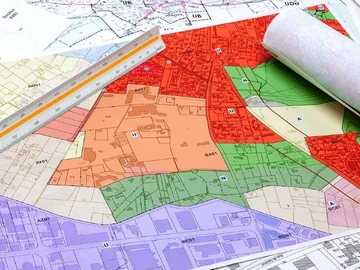If you've been browsing property listings in Zimbabwe, especially in high-density or peri-urban areas like Chitungwiza, Budiriro, or Ruwa, you've likely come across the term “cession agreement.” But what does it actually mean, and more importantly, is buying property via cession safe?
In this article, we unpack the meaning of a cession agreement, highlight its risks and benefits, and provide guidance on how to protect yourself when buying property through this arrangement.
What Is a Cession Agreement?
A cession agreement is a legal transfer of rights or interests from one party to another, usually without transferring full legal title. In the context of real estate in Zimbabwe, cession is common when the seller doesn’t hold a title deed but instead has rights to the property granted by a third party often a housing cooperative, local authority, or developer.
In simple terms, cession allows the current holder of the property rights to transfer those rights to a new buyer, with the knowledge or approval of the authority or entity that originally granted them.
Why Is Cession Common in Zimbabwe?
Cession agreements have become widespread due to land tenure issues, particularly in urban expansion zones and settlements that are not yet fully regularized.
According to the Zimbabwe National Human Settlements Policy, an estimated 1.5 million urban households are in informal or unregularised settlements, where residents often lack formal title deeds. In such areas, the only way to buy or sell property is through cession, since formal deeds haven’t been issued.
How Does a Cession Agreement Work?
Here’s how the process typically unfolds:
- Seller and buyer agree on a sale.
- The sale is subject to the approval of the original allocating authority (e.g., a cooperative, local council, or ministry).
- Once approved, the buyer’s name is entered in the records of that authority.
- The buyer receives proof of cession, but not a title deed.
The agreement is often formalized at the offices of the housing cooperative or local authority, and some sellers also notarize the documents for extra security.
Is Buying Through a Cession Agreement Safe?
The answer: It depends.
Pros of Cession Agreements
- More affordable: Properties sold via cession often cost less due to lack of title.
- Faster process: No need to wait months for a deed transfer from the Deeds Office.
- Wider access: Allows buyers to own land in areas where titled land is scarce.
Risks of Cession Agreements
- No legal title: You do not have full ownership rights enforceable in court without a title deed.
- Eviction risk: If the original allocating authority is disputed or unrecognized, the land may be repossessed.
- Fraud risk: Some properties are sold multiple times through forged or unauthorized cession agreements.
- Resale limitations: You may struggle to sell the property later or get a mortgage from a bank.
In fact, a 2023 report by the Zimbabwe Land Commission found that over 60% of land disputes in urban areas were linked to unclear or overlapping ownership claims resulting from cession or informal allocations.
How to Protect Yourself When Buying via Cession
If you're considering buying property through a cession agreement, follow these essential tips to minimize risk:
- Verify with the authority: Ensure the cooperative, council, or developer is legitimate and still operational.
- Get written consent: The cession must be officially approved by the authority holding the original allocation.
- Cross-check documentation: Ask to see the allocation letter, payment receipts, and any existing cession history.
- Use a lawyer: Engage a legal practitioner to draft or review the agreement before signing.
- Request formal regularisation plans: Check whether the area is earmarked for title issuance or government regularisation.
What About Title Deeds?
Some areas under cession are in the process of being regularised, and eventually buyers can apply for title deeds. However, this is often a long-term process and not guaranteed. It’s important to check with local authorities for updates on regularisation plans.
Final Thoughts
Cession agreements are a realistic and accessible route to homeownership for many Zimbabweans, especially where title deeds are not yet available. However, they come with risks primarily because cession does not equate to full legal ownership.
If you decide to proceed with a cession purchase:
- Do your due diligence,
- Involve a legal expert,
- And be clear on your long-term rights and responsibilities.
And remember, when in doubt, consult professionals or browse verified listings on Property.co.zw where you can find both cession and titled properties with clearer documentation.
 Continue with Facebook
Continue with Facebook
 Continue with Email
Continue with Email














